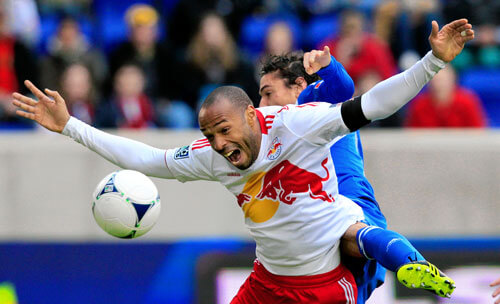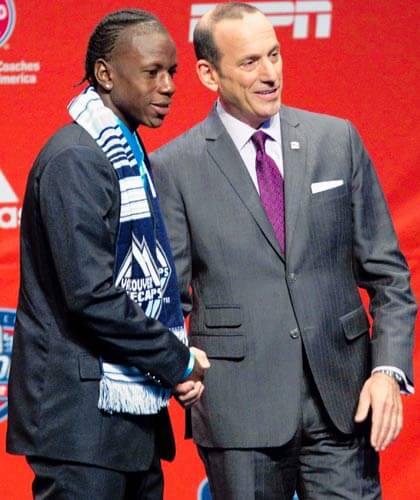By all reports, the most successful World Cup in recent times ended in Brazil last Sunday with Germany winning its fourth world title in defeating Argentina, 1-0. The Germans deservedly took home all the spoils, but for many of the rest of us, there were myriad reminders and lessons learned.
The 2014 World Cup was a tremendously positive human experience. The game was true to the old adage and reminded us that soccer is a game of glorious uncertainties, which makes it so engaging: the mighty Brazil – still the most successful soccer nation that produced the greatest ever player, Pele, and so many other world greats, and with the legacy of its unprecedented five World Cup titles – were humiliated, 7-1, by Germany as the host in the semifinals.
The game showed us that regardless of the David-Goliath matchups, wins are not a given: we saw relatively unaccomplished Cost Rica turn back four-time world champion Italy and former world champions Uruguay and England, which gave everyone hope, because it revealed that the once vast chasm that existed between the traditional world powers and the rest has dwindled.
Germany reminded us also that it takes more than individual stars to win: it’s about team organization and planning, discipline, perseverance, work rate, experience, staying positive and about depth, because after 113 minutes of double overtime, the Germans were still running when two substitutes – assist man Andre Schuerrle and goal scorer Mario Goetze – combined to lift the World Cup trophy for their country.
Conversely, Argentina taught us a lesson as well: defensive soccer is the wrong strategy. A team cannot sit back in its defense and hope for opponents’ mistakes to counterattack; you must trust yourselves and play positive soccer, go forward to force mistakes closer to the opponent’s goal and then play from there.
Other lessons were learnt, this time about the power of the game, its ability to unite people of the world and bring tears of joy, and grief, to a captive audience. Soccer also revealed the power to conjure much patriotism. The game has the ability to heal: Brazilians, and rightly so, protested against hosting the tournament and created a violent narrative among its marginalized masses, but the violent fervor ceased once the tournament began.
Soccer or football – and by now I can probably use these words interchangeably – is also filled with irony: most on this planet expected Brazilian success on the field; instead, it came off it. As Brazil, by its traditional standards, failed miserably on the field with consecutive defeats to Germany and Holland the cries were loud. “It has left a terrible blemish, a deep scar,” said Aldo Rebelo, Brazil’s sports minister. “It was a disaster.” But amidst this disaster came this echo, “I think that the world has seen the organizational skills of Brazil in this World Cup,” Thomas Bach, president of the International Olympic Committee, told reporters. “Many were surprised, but you could see how well this went.”
We all saw how the game touched many Americans, probably the last nation to embrace the sport; Americans now must fully realize soccer’s supreme international status, and that it affords them inclusiveness, the privilege of being more a part of the ‘world’ family to share the spirit of the game with the rest of the universe.
American basketball superstar LeBron James, who attended Sunday’s final, said it best when he echoed that this ‘football’ is bigger than the NBA finals. The 2014 World Cup in Brazil has shown that Americans have accepted the sport; they watched and enjoyed the game long after the U.S. exited.
Brazilians, despite their woes, gladly shared their country, its history and their customs with us. They allowed the game to teach us life lessons, to share unforgettable moments with family and friends, and in some instances brought many among us closer. So to Brazil, thanks for the wonderful, lifelong memories – you still won the World Cup.
WORLD CUP AWARDS
Among the individual award winners were German keeper Manuel Neuer, who won the Golden Glove as the best goalie in the tournament; Colombia’s James Rodriguez won the Golden Boot as the leading scorer with six goals in five games; and Argentine Lionel Messi took home the Golden Ball as the best player. Also, the tournament registered an all-time high 171 goals, tying the record set in 1998 France World Cup; the attendance for the 64 games was estimated at 3.43 million, second to the 1994 World Cup in the USA, which drew 3.6 million spectators.
CARIBBEAN CUP
In Caribbean Cup play last Sunday, July 13, at Jefferson High School Stadium in Flatlands, Brooklyn, Team Grenada defeated Team Antigua/Barbuda, 3-2, behind goals from Shane Rennie, Chevy Augustine and Kimron Redhead; Jameroquan Aaron tallied twice for Team Antigua/Barbuda. In the second game, Team Guyana walloped Team Trinidad and Tobago, 8-1; Hubert Anthony (3), Anthony Abrams (2), Marlon Benjamin (2) and Bevon Moseley did the damage for the winners, while Keron Doldron registered for the losers. Defending champion Team Jamaica gained a forfeit when Team St. Kitts/Nevis failed to show up for the last game.
In MLS last Saturday, Thierry Henry became the New York Red Bulls all-time assist leader in regular season play with 37 when he assisted on three other goals and scored once to lead the Red Bulls (5-5-8, 23 pts.) to a 4-1 win over the visiting Columbus Crew (4-6-8, 20 pts.) before 17,028 fans at Red Bull Arena on Saturday night, July 12. Henry won the MLS player-of-the-week award.

AP Photo/Matthias Schrader


























